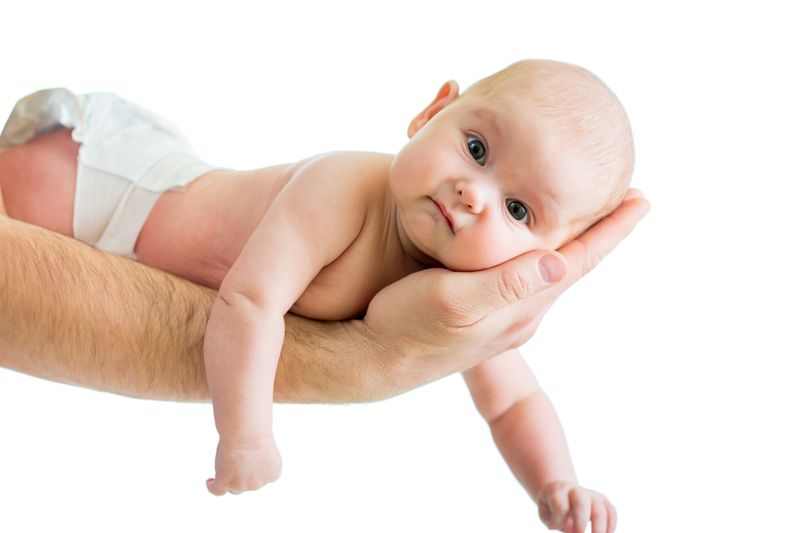Is Baby Getting Enough Breast Milk?
Since you cannot measure the exact amounts like you can when bottle feeding, it may leave a mother feeling insecure about the amount of milk she is producing.

A new mommy will sometimes wonder whether her baby has or is drinking enough breast milk while breastfeeding since you cannot measure the exact amounts like you can when bottle feeding. It may leave a mother feeling insecure about the amount of milk she produces.

Master Your Milk Supply
Never worry about your milk supply ever again! This is a 5-part video series designed to help breastfeeding mothers maximize their milk production. This course is an excellent resource for mothers who are concerned about their baby not getting enough breast milk, frustrated with minimal pumping results, or fearful of losing their milk supply. The video series offers step-by-step lessons that are available on-demand and accessible across all devices.
Best Indicators to Look Out For
- Sucking and swallowing: While breastfeeding, you can see by the way your baby is moving their mouth and chin whether they are drinking or not. Watch the video to see the examples below. If you can hear your baby swallowing, you can rest assured that they are getting in lots of milk, but not every baby makes swallowing sounds at the breast.
- Bowel movements: Colostrum will help move the meconium (first dark stools) from your baby’s system. Baby should have at least one dark bowel movement every day until about day three when the stools start to become lighter in color.
- A sensation at the breast: You should feel an intense, deep-pulling sensation when your baby is suckling.
- By the end of the baby’s first week, they should pass at least two soft stools each day. After three weeks of life, it is very common for exclusively breastfed babies to only have one stool every week, so don’t worry if your baby starts pooping less after three weeks of age. This is because breast milk is easily digested. Learn more about normal stools for the breastfed baby.
- Urination: After four days, your baby should wet at least four diapers per day (24 hours). A baby’s urine should be transparent. Darker urine indicates that your baby is not getting in enough fluids.
- Your breasts feel softer after nursing: This indicates that your baby has removed milk, making your breasts seem emptier.
- Weight gain: Most babies will lose about 9% of their birth weight and then gain it back by week two.
- How much breastmilk does a newborn need at each feeding?
- Breastmilk chart intake per age and stage in ml

Never Judge Your Baby’s Milk Intake by…
- Thinking that your breasts are not full of milk because they do not feel full. Many moms do not feel full or engorged during the first few weeks until the baby has started drinking well. An engorged breast does not indicate the amount of milk available.
- Baby is not sleeping through the night. Most breastfed babies do not sleep through at night. Breast milk is absorbed much quicker than formula; therefore, a breastfed baby might need to feed more often at night.
- Baby cries after every feeding. A baby may be crying for many different reasons.
- Baby seems never to get enough because they breastfeed very often. There is no right amount of time that a baby should feed. Each baby is different, but ensure that your baby is actively sucking and swallowing during feeding times. Comfort feeding is beneficial.
- Breast compression can also help your milk flow, keeping them alert during feedings. It is normal for your baby to want to breastfeed 15 or more times per day for a few weeks (between 6 and 8 weeks). After this, the feedings usually go down to between 8 and 10 feedings per day.
- Not pumping enough breast milk. The amount of milk you express has nothing to do with whether you have enough. Your baby removes milk much more efficiently than a breast pump, and a person's breasts constantly produce milk while a baby is sucking.
- Your baby is willing to take a bottle after breastfeeding. Do not offer your breastfed baby a bottle. This may interfere with breastfeeding and cause nipple confusion. Babies will usually accept anything you put in their mouths, even when they are not hungry, so this is not a good indication of whether your baby is hungry.
- Baby is pulling away from the breast. This could mean a few things.

The Tushbaby Hip Carrier
With its ergonomic design and comfortable waistband, Tushbaby provides optimal support for you and your baby. Say goodbye to shoulder and back pain from traditional carriers, as Tushbaby evenly distributes your baby's weight, relieving strain and promoting better posture.
How to Know if Baby is Full
- Baby starts falling asleep at the breast.
- Baby’s arms and legs become limp.
- Baby starts pulling away or moving their head away from the breast.
If you feel that your baby has a feeding problem or you are not producing enough breast milk, you should seek the help of a professional lactation consultant who can spend one-on-one time with you and your baby. Alternatively, opt for a Milkology breastfeeding course and equip yourself with the comprehensive knowledge necessary for a successful breastfeeding experience.
Suppose your baby does need to be supplemented. In that case, it is always best to introduce a lactation aid or other alternative feeding method instead of an artificial nipple to avoid nipple confusion.
Lactogenic Foods
Example of a Good Milk Transfer
If your baby has visible signs of milk transfer, as shown in this video, then you can rest assured that your baby is getting enough breast milk.
Other reasons why your baby is not drinking enough
- Your baby is sleepy at the breast - breastfeeding a sleepy baby
- You have a low milk supply.
- You are struggling to get your premature baby to latch.
Not enough breast milk for baby?
Want to share your advice or ask questions about your baby not getting enough breast milk?
Comments
Should I Keep Trying to Wake Him to Nurse?
by Karina
(United States)
"Hi, I love your website!
My lo is six weeks old & I am exclusively breastfeeding. At night he wakes up every 2-31/2 hrs. If I'm lucky, he will go 4 hrs, but that's not always the case. Well, lately, during the night feeding, he eats 10-15 min on one breast. I burp him, then switch over to the other side.
Sometimes he only eats for 5 min or nothing at all. He falls asleep & I can't wake him. I'm so tired at night that I just swaddled him again & lay him in his bassinet.
Should I keep trying to wake him to nurse on the other side? I wish he would sleep longer too. Thank you for your help!"
Re: You don't need to wake him.
by: Tracy
"Hi Karina, a baby older than six weeks does not "need" to breastfeed through the night like a newborn, so I recommend just breastfeeding him when he demands it. So now you can enjoy the times he doesn't wake up!
You do not need to worry about breastfeeding him on the other breast until he wakes again. Your body will adapt to the amount of milk that needs to be produced."
